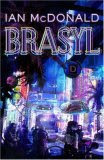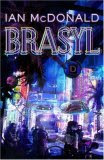I’m very pleased to announce that B&N.com has just picked three titles for inclusion in their Editor’s Choice Top Ten SF&F Novels of 2006 list, prompting our publicity department to issue the following press release:
For Immediate Release
January 3, 200
“The Best Thing Since Sliced Bread Story of the Year”
Several Year-End “Bests”Cap 2006 for SF&F Imprint
Including Barnes & Noble’s SF&F Book of the Year!

Amherst, NY — Barnes & Noble online today posted their Editor’s Choice lists for the best science fiction and fantasy books of 2006. Three books by Pyr, an imprint of Prometheus Books, are in this Top Ten Novels of 2006 list, including the top spot!
The Barnes & Noble Science Fiction/Fantasy Book of the Year, Editor’s Choice, is Infoquake by David Louis Edelman—a debut that ingeniously mixes business with pleasure, or as B&N puts it, “equal parts corporate thriller, technophilic cautionary tale and breathtakingly visionary science fiction adventure.”
 The other two Pyr books included in this best of the year list are The Crooked Letter by Sean Williams at number four (“prepare to be blown away,” they write) and Resolution, the conclusion to John Meaney’s three-book Nulapeiron Sequence, at number six.
The other two Pyr books included in this best of the year list are The Crooked Letter by Sean Williams at number four (“prepare to be blown away,” they write) and Resolution, the conclusion to John Meaney’s three-book Nulapeiron Sequence, at number six.
The UK bookseller Waterstone’s also included two Pyr titles on their list of Top Ten SF for 2006: Crossover by Joel Shepherd and Paragaea by Chris Roberson.
Publishing blog Bookgasm posted a Best 5 Sci-Fi Books of 2006 list in which three of the best five books were from Pyr. River of Gods by Ian McDonald topped their list at number one, while Infoquake
by Ian McDonald topped their list at number one, while Infoquake by David Louis Edelman and Crossover
by David Louis Edelman and Crossover (both first novels) tied for fifth.
(both first novels) tied for fifth.
According to the science fiction and fantasy reviewer for Bookgasm,

“The biggest story of the year…is Pyr’s rise to prominence as a high-quality sci-fi imprint. Pyr has managed to round up a stable of authors and titles that represents the cutting edge of sci-fi and backs it up with promotion and marketing that pretty much outdoes the other imprints out there. Bravo, Pyr. Here’s hoping for an even greater 2007.”
The imprint will certainly do its best to make 2007 even greater than 2006:
In February, Pyr will launch a new hard science fiction anthology series, Fast Forward 1, dedicated to presenting the vanguard of the genre and charting the undiscovered country that is the future. In March, Pyr will publish Keeping It Real,
dedicated to presenting the vanguard of the genre and charting the undiscovered country that is the future. In March, Pyr will publish Keeping It Real, the first of Justina Robson’s Quantum Gravity titles that are being hailed as her “breakout” books—the most entertaining, fun, and commercial of her novels to date. Promotion for Keeping it Real includes a special music track by The No Shows (www.thenoshows.com)—the hottest rock band of 2021.
the first of Justina Robson’s Quantum Gravity titles that are being hailed as her “breakout” books—the most entertaining, fun, and commercial of her novels to date. Promotion for Keeping it Real includes a special music track by The No Shows (www.thenoshows.com)—the hottest rock band of 2021.

In May, it’s “Bladerunner in the tropics” with Brasyl by Ian McDonald, the writer the Washington Post said is “becoming one of the best sf novelists of our time.” McDonald moves from India (River of Gods) to past, present, and future Brazil, with all its color, passion, and shifting realities, in a novel that is part SF, part history, part mystery, and entirely enthralling.
by Ian McDonald, the writer the Washington Post said is “becoming one of the best sf novelists of our time.” McDonald moves from India (River of Gods) to past, present, and future Brazil, with all its color, passion, and shifting realities, in a novel that is part SF, part history, part mystery, and entirely enthralling.
Pyr has already begun developing a reputation for publishing “smart” science fiction. But in September 2007, Pyr gets fantastic with its first straight-up commercial epic fantasy novel: The Blade Itself by Joe Abercrombie. This book will lead Pyr’s Fall-Winter 07-08 season and be launched at Book Expo America in June 2007.
In other 2006 year-end awards, the blog Pat’s Fantasy Hotlist called Pyr “a breath of fresh air in both the fantasy and science fiction genres” and gave the imprint the creatively named and gratefully accepted “Best Thing Since Sliced Bread Award.”
over on his site, The Agony Column. As he says:


.jpg)




